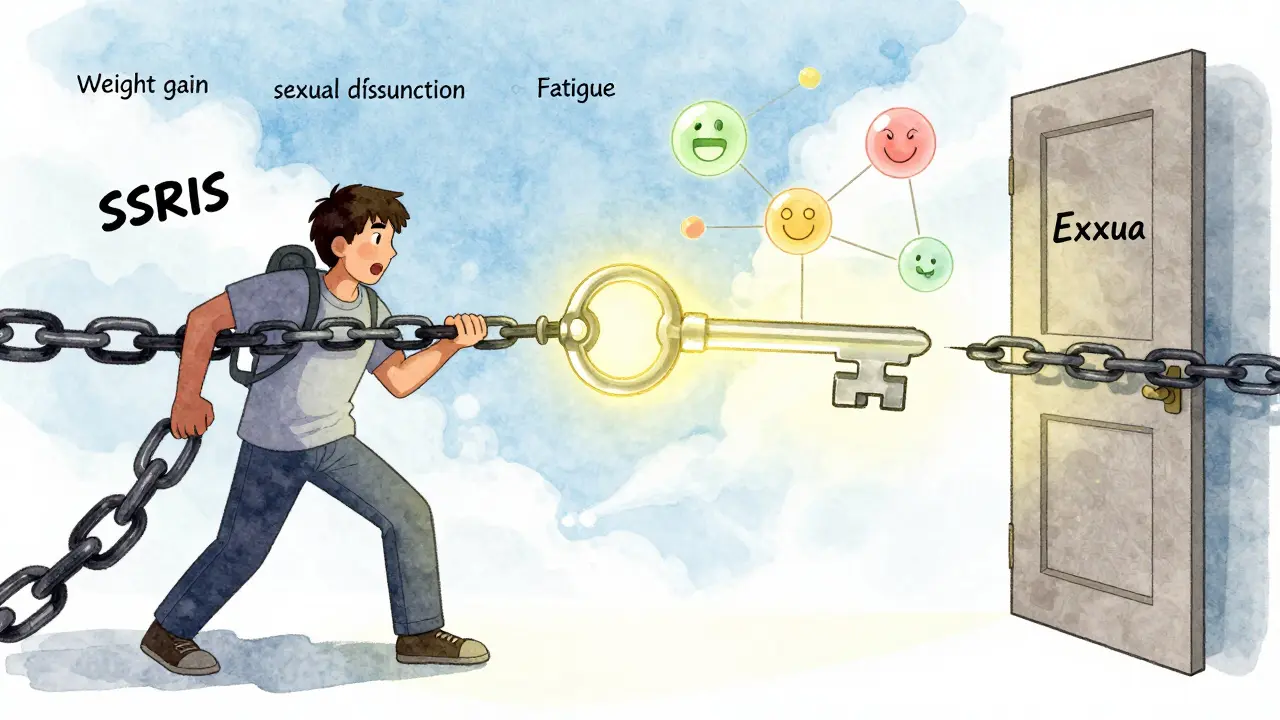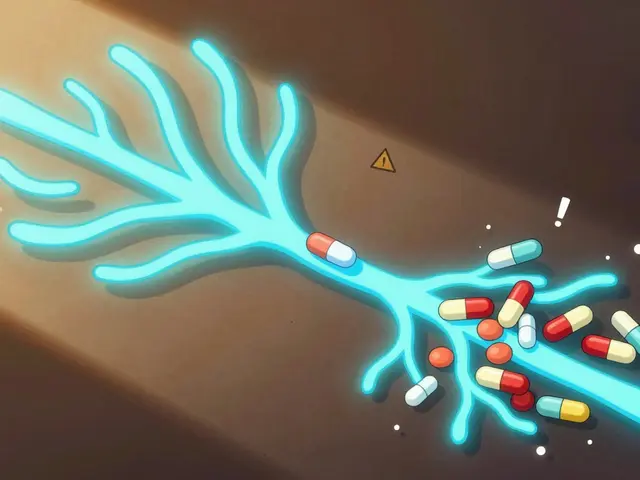Depression treatment: clear steps you can try now
Depression feels heavy, but there are real, effective ways to ease it. You don’t have to guess which step to take first. This page helps you understand common treatments, what they do, and simple actions you can start today.
Medical treatments: what to expect
Antidepressants are a common option. SSRIs (like sertraline or fluoxetine) and SNRIs (like venlafaxine) often reduce symptoms over weeks. Bupropion can help if low energy or sexual side effects are a worry. Most meds take 4–8 weeks to show benefit. If a medicine causes bad side effects or no improvement after a full trial, your doctor may switch it or adjust the dose.
For moderate to severe depression, combining medication with therapy usually works better than either alone. For treatment-resistant cases, there are options such as atypical antipsychotic add-ons, ketamine clinics, or brain stimulation therapies—these occur under specialist care. Always talk about side effects, interactions with other drugs, and how long you might need treatment before starting any medicine.
Therapy and self-care that actually help
Cognitive Behavioral Therapy (CBT) and Interpersonal Therapy (IPT) are proven to reduce depressive symptoms. CBT teaches practical skills to change unhelpful thoughts and behaviors. IPT focuses on relationships and role changes that can trigger depression. If in-person therapy is hard, many people find online therapy or guided programs useful and more flexible.
Simple daily habits make a big difference: a short walk, regular sleep times, small goals you can finish, and cutting back on alcohol. Try behavioral activation—pick one activity each day you used to enjoy and do it even if you don’t feel like it. Track mood in a journal or app so you can see what helps and what doesn’t.
Practical tips: write down questions before appointments, track side effects, and bring a friend or family member for support if you want. Tell your prescriber about other meds and supplements you take; some interactions matter. If you start a new antidepressant, plan for follow-ups at 2–4 weeks to check how you’re doing.
If you’re having thoughts of harming yourself or feel unsafe, contact emergency services or a crisis line right away. Tell someone you trust where you are and ask them to stay with you until help arrives.
Recovery often comes in steps, not all at once. You might try therapy first, a medication first, or both together—what matters is a plan that fits your life and symptoms. Talk openly with your clinician and ask about timelines, side effects, and next steps if the first choice doesn’t work. You can get better, and small steps today make the path forward clearer.

New Antidepressants with Better Side Effect Profiles: What’s Emerging in 2026
New antidepressants like Exxua, Zuranolone, and Auvelity offer faster relief and fewer side effects than older SSRIs. Discover how these 2026 breakthroughs are changing depression treatment-and who benefits most.
read more
Dopamine-Norepinephrine Reuptake Inhibitors: How Wellbutrin and Its Alternatives Work
Curious about how medications like Wellbutrin fight depression? This deep dive explains dopamine-norepinephrine reuptake inhibitors (DNRIs), covering how they work, why Wellbutrin stands out, and what you should know about related drugs. If you’re exploring depression treatments or are puzzled by your own prescription, this readable guide untangles the science behind DNRIs with concrete examples and practical advice. Whether you’re thinking about starting medication or just after the neuroscience, get the real scoop here. Plus, find out when an alternative for Wellbutrin might make sense.
read more
